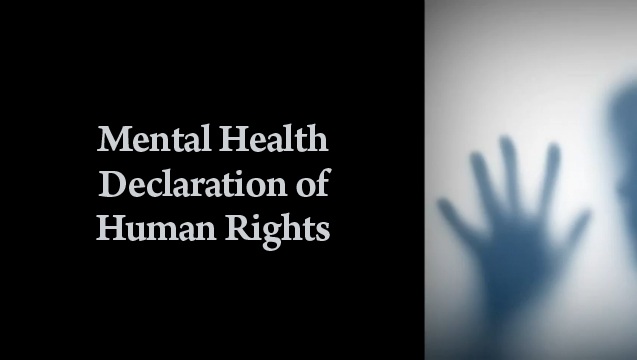The Sydney Morning Herald— September 3, 2011
by Richard Baker and Nick McKenzie
THIRTY-SIX people died unexpected, unnatural or violent deaths in Victorian mental health facilities between 2008 and 2010, Coroners Court files reveal.
Data released to The Saturday Age by the Coroner’s Prevention Unit reveals 119 of the 502 coronial inquests held in Victoria between 2008 and 2010 involved people with diagnosed mental illnesses.
Of those 119 mental health coronial cases, almost a third related to the deaths of patients while they were being treated at state-run and private mental health facilities.Other figures from the Department of Health show 975 people under the care of Victoria’s mental health system have died unnatural, unexpected or violent deaths between 2006 and 2010.
These include mental health patients under the care of the state who committed suicide outside psychiatric facilities, as well as those who died in car accidents and house fires or drowned. But they also include dozens of patients who died in Victorian psychiatric wards.
The Saturday Age today publishes an investigation into the deaths of three men who died in state-run psychiatric wards across Melbourne between 2007 and 2009: Adam White, 31, Anthony Travaglini, 40, and Jeffery Hartwig, 43.
Each case involves allegations that serious failings by senior mental health staff may have contributed towards their unexpected deaths. Evidence also suggests that the health services involved allegedly covered up or failed to collect important information about the deaths, possibly preventing a proper examination of their cause.
Mr White’s death was the subject of a coronial inquest this year but a finding has yet to be made. The deaths of Mr Travaglini and Mr Hartwig are to be investigated by a coroner at a later date.
Southern Health, the health service responsible for the care of Mr Hartwig and Mr White care, this week complained to the Coroner’s Court after receiving questions from The Saturday Age about their deaths. A suppression order was made by coroner John Olle preventing the newspaper from publishing important information about Mr Hartwig’s death. Despite this, the paper is determined to report as much as it can about these deaths.
Our investigation found:
■ Mr Travaglini, who died in September 2008 at Eastern Health’s Upton House psychiatric hospital in Box Hill, was killed by a combination of powerful anti-psychotic medications given to him by staff, according to a Victorian government pathologist. Staff and patients aware of the circumstances of his death say the 40-year-old was pleading not to be given more drugs on the night he died. Staff and patients also allege there was an attempt to conceal information about the circumstances of his death from his family.
■ Mr Hartwig died at the Monash Medical Centre in December 2009 after he went into a coma following a suspected overdose of illicit drugs supplied by unknown visitors. His family says the hospital’s psychiatric ward kept no visitor log nor did it supervise visits to patients. Police sources say the hospital’s legal department interfered with their investigation and ordered staff not to speak about the circumstances of Mr Hartwig’s death.
■ Mr White’s 2007 death at Dandenong Hospital’s psychiatric ward during a struggle with security guards was the subject of a recent inquest. A finding has yet to be made, but evidence to the inquest suggests Mr White was asphyxiated while being held face down by security staff. A witness told the inquest that Mr White apparently yelled ”I give up”, but security did not ease off. He died soon after.
The circumstances of the men’s deaths and the treatment of their families raise questions about whether there is a culture of cover-up in the Victorian mental health system. The families have complained of a lack of answers from health services responsible for the care of their loved ones.
Eastern Health declined to comment, citing the coming inquest into Mr Travaglini’s death.
In addition to asking that details of Mr Hartwig and Mr White’s deaths be suppressed, Southern Health said it was ”committed to patient-centred care and constant improvement in regards to the quality of service we provide to our patients”.
Health Department statistics show that 239 people, 162 of them men, under the care of Victoria’s mental health system died unexpected, unnatural or violent deaths in 2009-10.
Melbourne Health and Eastern Health had the highest rates of unexpected, unnatural or violent deaths, with 44 and 31 respectively.
In 2008-09, there were 302 such deaths. In 2007-08 there were 205 and in 2006-07 there were 229.
Victoria’s chief psychiatrist, Ruth Vine, admitted the performance of Victoria’s mental health system could improve.
Dr Vine said she could not comment on the specific issues identified in the three deaths.
But she said the mental health area was one of the most difficult for health professionals.
”I don’t wish to be defensive or an apologist because I’d be the first to admit that our care provided is not perfect all the time,” Dr Vine said.
”But it is difficult to manage fairly large, fairly aggressive men and I think it is the case in some of these [deaths] that there was a degree of physical unwellness underlying.”
Dr Vine said Victoria had taken steps in recent years to improve care given to mental health patients.


